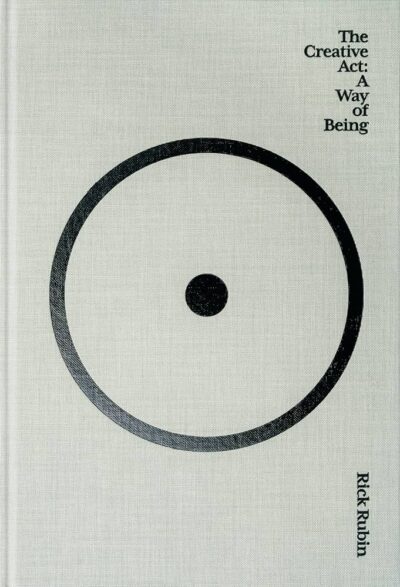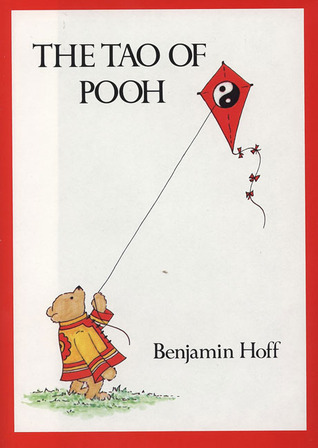182 Results with the "Philosophical" genre
Adventure Fiction (1164)
Biography (435)
Business & Finance (1)
Children's Literature (124)
Comics (6)
Culture (51)
Drama (123)
Dystopian (29)
Fable (86)
Fantasy (1132)
Fantasy (203)
Fiction (1010)
Finance (1)
Gothic Fiction (12)
Historical Fiction (615)
History (122)
Horror (56)
Lifestyle (36)
Literary (404)
Literary Fiction (207)
Memoir (113)
Mystery (422)
Non-fiction (87)
Novel (549)
Paranormal Fiction (96)
Philosophy (45)
Poetry (249)
Political Fiction (14)
Politics (42)
Practical (32)
Psychological (4)
Psychological Thriller (108)
Relationship (6)
Romance Novel (716)
Romantic Melodrama (14)
Satire (91)
Science (46)
Science Fiction (345)
Self-help (68)
Society (65)
Society (2)
Spiritual Growth (1)
story (2)
Thriller (704)
True Crime (56)
view (11)
Women's Fiction (2)
Young Adult (233)
-
Chapter
How to Choose
 In How to Choose, the chapter explores the decision-making process within creative work, emphasizing the role of comparison and instinct in refining artistic choices. It draws a parallel between developing a creative piece and a seed growing into a tree, where every choice serves as a branching point, shaping the final outcome. The initial idea forms the foundation, much like the trunk of a tree, while each decision sends the work in different directions, reinforcing the concept that artistic evolution is…
In How to Choose, the chapter explores the decision-making process within creative work, emphasizing the role of comparison and instinct in refining artistic choices. It draws a parallel between developing a creative piece and a seed growing into a tree, where every choice serves as a branching point, shaping the final outcome. The initial idea forms the foundation, much like the trunk of a tree, while each decision sends the work in different directions, reinforcing the concept that artistic evolution is…-
341.4 K • Ongoing
-
-
Chapter
Chapter 4: Spelling Tuesday
 Chapter 4: Spelling Tuesday, In a passage from Winnie-the-Pooh, Pooh visits Owl in the Hundred Acre Wood, hoping that Owl can help answer his questions. Owl represents the kind of busy, scholarly figure that Taoist philosophers like Lao-tse and Chuang-tse often critiqued, as they believed that such individuals were too caught up in complex thinking to grasp the simplicity of Taoist principles. In the modern world, scholars are still often the ones who study Taoism. However, rather than experiencing life…
Chapter 4: Spelling Tuesday, In a passage from Winnie-the-Pooh, Pooh visits Owl in the Hundred Acre Wood, hoping that Owl can help answer his questions. Owl represents the kind of busy, scholarly figure that Taoist philosophers like Lao-tse and Chuang-tse often critiqued, as they believed that such individuals were too caught up in complex thinking to grasp the simplicity of Taoist principles. In the modern world, scholars are still often the ones who study Taoism. However, rather than experiencing life…-
68.0 K • Ongoing
-
-
Chapter
The Source of Creativity
 The chapter "The Source of Creativity" explores the vast and limitless reservoir of creative material that surrounds us at all times. Every thought we have, every sensation we experience, and even the fleeting fragments of dreams or forgotten ideas contribute to this boundless source. Creativity, rather than being something we generate in isolation, is described as an external force—one that we tune into through observation, intuition, and memory. This perspective shifts the understanding of artistic…
The chapter "The Source of Creativity" explores the vast and limitless reservoir of creative material that surrounds us at all times. Every thought we have, every sensation we experience, and even the fleeting fragments of dreams or forgotten ideas contribute to this boundless source. Creativity, rather than being something we generate in isolation, is described as an external force—one that we tune into through observation, intuition, and memory. This perspective shifts the understanding of artistic…-
341.4 K • Ongoing
-
-
Chapter
The Abundant Mindset
 Creativity, much like a river, flourishes when it flows freely, replenishing itself through continuous movement and expression. "The Abundant Mindset" challenges the notion that inspiration is a limited resource, arguing instead that the more one creates and shares, the more ideas will arise. This mindset encourages an open approach to creative work, where individuals engage in their craft without fear of running out of inspiration. By contrast, a scarcity mindset suggests that creativity is a finite well,…
Creativity, much like a river, flourishes when it flows freely, replenishing itself through continuous movement and expression. "The Abundant Mindset" challenges the notion that inspiration is a limited resource, arguing instead that the more one creates and shares, the more ideas will arise. This mindset encourages an open approach to creative work, where individuals engage in their craft without fear of running out of inspiration. By contrast, a scarcity mindset suggests that creativity is a finite well,…-
341.4 K • Ongoing
-
-
Chapter
Play
 Creating art is a delicate balance between commitment and play, requiring both deep focus and an openness to spontaneity. It is a process that draws from a vast, cosmic well of creativity while simultaneously embracing the lighthearted joy that comes with uninhibited exploration. Just as a child instinctively picks a color to paint the sky without concern for accuracy, artists thrive when they allow themselves to create freely, without being weighed down by expectations of perfection. The chapter…
Creating art is a delicate balance between commitment and play, requiring both deep focus and an openness to spontaneity. It is a process that draws from a vast, cosmic well of creativity while simultaneously embracing the lighthearted joy that comes with uninhibited exploration. Just as a child instinctively picks a color to paint the sky without concern for accuracy, artists thrive when they allow themselves to create freely, without being weighed down by expectations of perfection. The chapter…-
341.4 K • Ongoing
-
-
Chapter
Setting
 The setting in which we immerse ourselves plays a crucial role in shaping our ability to connect with the universe, creative energy, and collective consciousness. Each individual has a unique way of tuning into inspiration, whether through solitude, social engagement, or a balance between the two. Some may find their most profound creative insights while surrounded by nature, where the stillness of a forest, the rhythmic crash of ocean waves, or the serenity of a monastery fosters a deep sense of clarity.…
The setting in which we immerse ourselves plays a crucial role in shaping our ability to connect with the universe, creative energy, and collective consciousness. Each individual has a unique way of tuning into inspiration, whether through solitude, social engagement, or a balance between the two. Some may find their most profound creative insights while surrounded by nature, where the stillness of a forest, the rhythmic crash of ocean waves, or the serenity of a monastery fosters a deep sense of clarity.…-
341.4 K • Ongoing
-
-
Chapter
Tuning Out (Undermining Voices)
 Tuning Out from Undermining Voices examines the shift artists experience as they transition from the solitary nature of their early work to the overwhelming influence of external expectations. In the beginning, creative expression is deeply personal, often evolving in isolation where an artist’s only audience is themselves. This period of artistic incubation allows for uninhibited exploration, with no concern for public reception, financial viability, or critical judgment. However, once the work is…
Tuning Out from Undermining Voices examines the shift artists experience as they transition from the solitary nature of their early work to the overwhelming influence of external expectations. In the beginning, creative expression is deeply personal, often evolving in isolation where an artist’s only audience is themselves. This period of artistic incubation allows for uninhibited exploration, with no concern for public reception, financial viability, or critical judgment. However, once the work is…-
341.4 K • Ongoing
-
-
Chapter
Chapter 1: Foreword
 Foreword: The journey of writing often begins not with a grand plan, but with a curious spark. When Pooh notices Benjamin Hoff writing, his innocent interruption becomes the foundation of something greater. Hoff, trying to explain his book, declares it’s about staying peaceful and content no matter what. Pooh, with his usual calm demeanor, challenges this idea not by argument, but with a simple question—whether Hoff has truly understood the lessons he’s writing about. That question hits deeper than…
Foreword: The journey of writing often begins not with a grand plan, but with a curious spark. When Pooh notices Benjamin Hoff writing, his innocent interruption becomes the foundation of something greater. Hoff, trying to explain his book, declares it’s about staying peaceful and content no matter what. Pooh, with his usual calm demeanor, challenges this idea not by argument, but with a simple question—whether Hoff has truly understood the lessons he’s writing about. That question hits deeper than…-
68.0 K • Ongoing
-
-
Chapter
Inspiration
 Inspiration often arrives unexpectedly, striking the mind with a sudden surge of clarity and creativity that seems almost magical. It is an elusive force that appears to come from nowhere, yet profoundly influences the way we think, create, and perceive the world. The concept of inspiration is deeply rooted in history, with its origins tracing back to the Latin inspirare, meaning "to breathe in." This linguistic connection suggests that inspiration is much like air—we must create space for it to flow…
Inspiration often arrives unexpectedly, striking the mind with a sudden surge of clarity and creativity that seems almost magical. It is an elusive force that appears to come from nowhere, yet profoundly influences the way we think, create, and perceive the world. The concept of inspiration is deeply rooted in history, with its origins tracing back to the Latin inspirare, meaning "to breathe in." This linguistic connection suggests that inspiration is much like air—we must create space for it to flow…-
341.4 K • Ongoing
-
-
Chapter
Shades and Degrees
 In Shades and Degrees, the text explores the intricate and often unpredictable nature of artistic creation, emphasizing how different sources of inspiration and varying levels of effort can yield vastly different results. The chapter begins by contemplating how two seemingly identical sparks of creativity can lead to entirely different outcomes—one may develop into a substantial body of work, while the other might produce little to nothing. This unpredictability mirrors the creative process itself, where…
In Shades and Degrees, the text explores the intricate and often unpredictable nature of artistic creation, emphasizing how different sources of inspiration and varying levels of effort can yield vastly different results. The chapter begins by contemplating how two seemingly identical sparks of creativity can lead to entirely different outcomes—one may develop into a substantial body of work, while the other might produce little to nothing. This unpredictability mirrors the creative process itself, where…-
341.4 K • Ongoing
-
- Previous 1 … 6 7 8 … 10 Next
